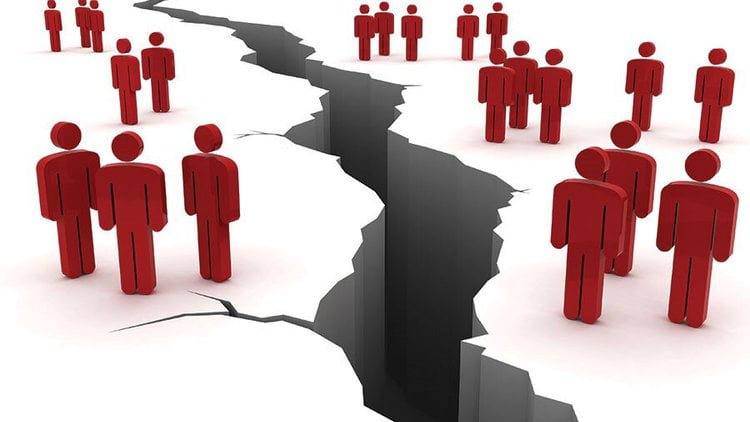A Community Divided
By Kamala Radha devi dasi | Ноя 27, 2021

A Small Church’s Example of Compassion
Last year, members of the Calvary Christian Reformed Church attempted to do something that has proven difficult in America: establish common ground in a time when so many are divided politically.
It’s a familiar complaint in America: political polarization has grown toxic, and houses of worship have not been exempted. Church leaders explain that they have always had members of their congregation who were both Democrats and Republicans, but something happened in 2016, causing a crisis never seen before, in which people’s political identities took precedence over their spiritual beliefs. Pastors were being told their services were “leaning too towards the left” and then also “preaching too conservatively”. So a few churches decided to try something new; they offered classes.
With classes developed by a small Christian non-profit, the goal was for churches to heal their political divide by hosting discussions on issues like immigration, police reform, and healthcare. “It’s kind of like a church service with an argument in the middle of it “ states Janet Adamy for The Wall Street Journal. “There are prayers, and there is always one topic that gets discussed. It’s a very thoughtful and constructive conversation, but it is meant to be candid and it is meant to be unvarnished. And the goal is that if you give people a constructive format for discussing their differences, it will actually bring the people closer together and it will strengthen their relationship to their community and to their faith.
This issue of opposing political views is not unique to Christianity; we see this presently within our own Bhakti movement. Polarizing views break us apart instead of bringing us together. At temples, classes are offered daily, major Sunday feast lectures, and we host istagosthis. Maybe it is time that we create and offer a safe space for devotees to discuss their political struggles, to feel seen and heard, where they can reveal their hearts in confidence.
Do Politics Belong in Communities of Faith?
Should devotees focus to transcend politics or address them? Is there a difference between being political and being partisan?
“Preaching’s gotten a lot tougher since the 2016 election, states Lee Hall Moses, a pastor of First Christian Church in Greensboro, North Carolina. “When even words like kindness seemed to have political implications and everyone retreated to their corners, boxing gloves at the ready. It’s complicated by the fact that “politics” has now come to mean any contemporary issue on which people might disagree. In times such as these, the preacher’s task is to remind the congregation that the basic tenets of our faith—grace and mercy, radical hospitality, love of neighbor—go beyond politics.”
Deep down we do know that getting overly involved in the world of politics is a distraction from our spiritual pursuits, but how does one define “overly”? When policy changes affect our everyday lives, how can one not get involved?
In one of the stories from the Calvary Reformed Christian Churches classes, The Pastor herself shared a personal story of growing up in the church and also being shunned by that church when she was twenty and had a child out of wedlock. She ended up giving her baby up for adoption and then was welcomed back, and it was a hard thing for her to wrap her young mind around. The attendees of this class then prayed, acknowledged her pain, and even apologized on behalf of their faith for the way she was treated.
Even if politics do not belong in our houses of worship and our goal is to transcend this material life, we should still acknowledge the divide amongst us and offer respite to those that are struggling. We can still show compassion by bearing witness to someone’s pain and validating their experience. Validation is enough to help us start to heal the divide.
Kamala Radha is an End of Life Doula and Grief Educator, to read more from Kamala Radha please visit kamalaradha.com
Listen: The Journal Podcast: A Church Tries to Bridge its Political Divides















